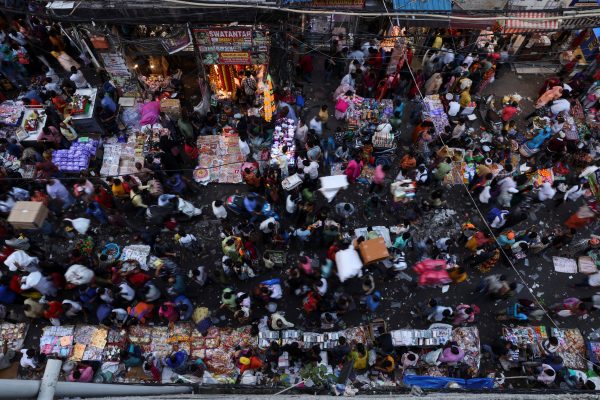A global economy that is fracturing on geopolitical lines needs leadership to preserve and protect the open, liberal trading order and there is still scepticism, not ill-founded, about whether historically protectionist India has what it takes to step up on the substance of these problems.
Indian trade policy has long had a protectionist bent. Even the liberalising reforms of the early 1990s – as important and beneficial as they were – were limited, and vested interests and populist domestic politics continue to trump policies that would be beneficial for India now and into the future.
India’s aversion to open trade was on full display in late 2019 when India withdrew from the Regional Comprehensive Economic Partnership (RCEP), Asia’s most consequential economic agreement, citing the risk of import surges and damaging trade deficits, particularly with China. These are fallacies and contradict basic principles of economics. They will prove costly not only to consumers, but also to firms who lose access to cheaper inputs, vital for increasing industrial competitiveness and the opportunity to expand production, employment and profits.
In an era where global trade is increasingly characterised by complex global value chains, India should be pursuing every avenue available to integrate itself into these networks. India hasn’t missed the boat as some Indian policy circles suggest. In the current geopolitical environment, India is indeed well placed to chart a new internationally oriented growth strategy. As costs rise and confidence falls in China, firms are looking to diversify production networks in order to hedge geopolitical risk. With a mixture of carrots and sticks, governments around the region and the world are egging them on. With its large working-age population and relatively low labour costs, India should be positioning itself to reap the huge benefits from this circumstance.
But despite this potential, Indian policymakers remain flatfooted and India’s international trade diplomacy a creature of its past. Even the FTAs the country has recently signed onto with some enthusiasm, such as that with Australia, are of relatively low quality, offering only piecemeal gains by way of market access let alone modern, WTO plus provisions around labour and environmental standards.
To absorb its large and still-growing labour force into the future, India still needs a strong, broad-based, internationally competitive and dynamic manufacturing sector. For this, trade openness is essential.
As Amita Batra writes in this week’s lead article, ‘enhancing manufacturing sector specialisation and competitiveness through participation in global value chains needs to be the underlying objective of Indian trade policy. It needs an open and more liberal trade regime with tariffs at par with comparable emerging market economies for the manufacturing sector as a whole and especially in sectors with potential for integration into global value chains.’
India has a growing domestic market, but even very large markets cannot serve as the basis for rapid structural change and economic growth if per capita incomes are low. Autarky has its limits and its costs. This lesson should be clear from India’s pre-1990s economy – import-substitution proved not to be a successful growth strategy. On the other hand, the path to economic development through exports and an open trade regime that ensures flexibility and competitiveness is well-established in Asia. If India is to reach its national potential it needs a new era of reform, one that dedicates substantial focus to an FTA agenda ‘aimed at deeper integration and broader trade coverage’ as Batra says.
As manufacturing becomes increasingly sophisticated, the cost of India’s autarkically-inclined trade policies will only grow. By divorcing itself from global value chains India is denying itself important knowledge and technology spillovers. The dividend from research and development exchange, collaboration and competition that occurs naturally with liberal trade is impossible to match in an insular environment.
As the notion of ‘on-shoring’ takes hold around the world, India – as elsewhere – should not misinterpret ‘the objective of ‘self-reliance’ as building entire supply chains domestically’. As the West will come to realise, isolating itself from China in the name of ‘protection’ is not only impossible but ultimately undermines security.
India’s trade protectionism hasn’t gone unnoticed in the region. The ASEAN countries are scarred by India’s failure over RCEP. But this year, as G20 host, the spotlight on India and its trade policies will be brighter than usual. Modi, with a domestic approval rating that is the envy of most world leaders, has the opportunity to leverage this domestic popularity on the world stage and launch the reforms necessary to demonstrate that it is worthy of the global leadership it aspires to.
One area of domestic policy that will test India’s standing in the G20 is food security. A priority issue during Indonesia’s G20 presidency and not far from the minds of policymakers working to keep on top of inflation, food security will likely be an important talking point at the G20 again this year. But India’s unilateral, knee-jerk export bans and tariffs on staples like rice and wheat that put increased pressure on international markets are just the kind of policies that undermine India’s reputation as a reliable trading partner and call into question its global leadership credentials.
India’s ambitions of assuming major power status are justified – it is the world’s largest democracy, will soon boast the world’s largest population and has huge economic and political potential. But its ambitions will remain just that – ambitions – if its economic growth doesn’t deliver upon its potential. Fundamental will be an update to trade strategy that encourages, rather than hinders, participation in global value chains and the development of a competitive manufacturing sector.
The EAF Editorial Board is located in the Crawford School of Public Policy, College of Asia and the Pacific, The Australian National University.

